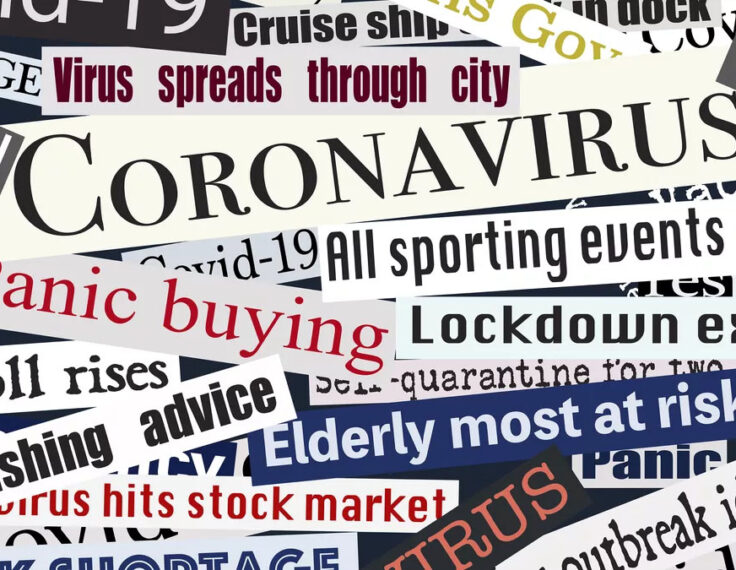Explore All Articles
All Articles

Exploring partisans’ biased and unreliable media consumption and their misinformed health-related beliefs
Natasha Strydhorst, Javier Morales-Riech and Asheley R. Landrum
This study explores U.S. adults’ media consumption—in terms of the average bias and reliability of the media outlets participants report referencing—and the extent to which those participants hold inaccurate beliefs about COVID-19 and vaccination. Notably, we used a novel means of capturing the (left-right) bias and reliability of audiences’ media consumption, leveraging the Ad Fontes Media ratings of 129 news sources along each dimension.

Assessing misinformation recall and accuracy perceptions: Evidence from the COVID-19 pandemic
Sarah E. Kreps and Douglas L. Kriner
Misinformation is ubiquitous; however, the extent and heterogeneity in public uptake of it remains a matter of debate. We address these questions by exploring Americans’ ability to recall prominent misinformation during the COVID-19 pandemic and the factors associated with accuracy perceptions of these claims.

Support for “doing your own research” is associated with COVID-19 misperceptions and scientific mistrust
Sedona Chinn and Ariel Hasell
Amid concerns about misinformation online and bias in news, there are increasing calls on social media to “do your own research.” In an abundant information environment, critical media consumption and information validation are desirable. However, using panel survey data, we find that positive perceptions toward “doing your own research” are associated with holding more misperceptions about COVID-19 and less trust in science over time.

Less reliable media drive interest in anti-vaccine information
Samikshya Siwakoti, Jacob N. Shapiro and Nathan Evans
As progress on vaccine rollout in the United States slowed down in Spring 2021, it became clear that anti-vaccine information posed a public health threat. Using text data from 5,613 distinct COVID misinformation stories and 70 anti-vaccination Facebook groups, we tracked highly salient keywords regarding anti-vaccine discourse across Twitter, thousands of news websites, and the Google and Bing search engines from May through June 2021, a key period when progress on vaccinations very clearly stalled.

Where conspiracy theories flourish: A study of YouTube comments and Bill Gates conspiracy theories
Lan Ha, Timothy Graham and Joanne Gray
We studied YouTube comments posted to Covid-19 news videos featuring Bill Gates and found they were dominated by conspiracy theories. Our results suggest the platform’s comments feature operates as a relatively unmoderated social media space where conspiracy theories circulate unchecked. We outline steps that YouTube can take now to improve its approach to moderating misinformation.

Cognitive reflection is associated with greater truth discernment for COVID-19 headlines, less trust but greater use of formal information sources, and greater willingness to pay for masks among social media users in Pakistan
Ayesha Ali and Ihsan Ayyub Qazi
We evaluated the relationship between individual differences in cognitive reflection and the ability to discern between true and false COVID-19 information, trust in information sources for receiving COVID-19 information and willingness to pay (WTP) for masks, using a sample of 621 low- and middle-income users in Pakistan.

Clarity for friends, confusion for foes: Russian vaccine propaganda in Ukraine and Serbia
Katrina Keegan
This paper examines how Russia tailors its vaccine propaganda to hostile and friendly audiences, like Ukraine and Serbia. Web scraping of all articles about vaccines on Russian state-owned websites from December 2020 to November 2021 provided data for quantitative topic modeling and qualitative analysis.

Partisan reasoning in a high stakes environment: Assessing partisan informational gaps on COVID-19
Erik Peterson and Shanto Iyengar
Using a survey conducted in July 2020, we establish a divide in the news sources partisans prefer for information about the COVID-19 pandemic and observe partisan disagreements in beliefs about the virus. These divides persist when respondents face financial costs for incorrectly answering questions.

